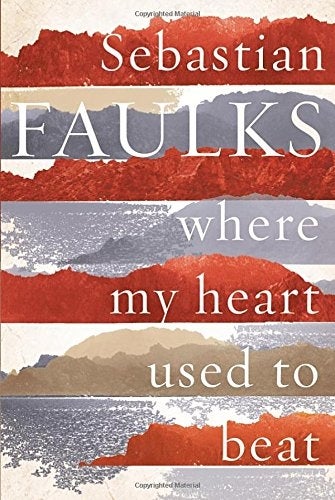Where My Heart Used To Beat, by Sebastian Faulks - Book review: A shrink’s life in small doses
Hutchinson - £20

Your support helps us to tell the story
From reproductive rights to climate change to Big Tech, The Independent is on the ground when the story is developing. Whether it's investigating the financials of Elon Musk's pro-Trump PAC or producing our latest documentary, 'The A Word', which shines a light on the American women fighting for reproductive rights, we know how important it is to parse out the facts from the messaging.
At such a critical moment in US history, we need reporters on the ground. Your donation allows us to keep sending journalists to speak to both sides of the story.
The Independent is trusted by Americans across the entire political spectrum. And unlike many other quality news outlets, we choose not to lock Americans out of our reporting and analysis with paywalls. We believe quality journalism should be available to everyone, paid for by those who can afford it.
Your support makes all the difference.In his 2005 novel Human Traces, Sebastian Faulks explored the history of 19th-century psychiatry and neurology. The hero of his new novel is a psychiatrist born in 1916, whose main work in psychiatry was in the days of the anti-psychiatry movement of the 1950s and 60s, when some psychiatrists were rebelling against the barbaric “treatments” – straitjackets, lobotomies, insulin-induced hypoglycaemic comas – used on psychotic patients. This being Faulks, though, the novel encompasses much more than one subject. This is a long, lingering sweep through a man’s whole life.
Robert Hendricks is 64 in 1980, when the novel is set. Returning from a stay in New York, he finds a letter awaiting him. The sender is an old man called Pereira who says he was in the Army with Hendricks’ father during the First World War. Since Hendricks’ father died during that war when Hendricks was only two, his curiosity is piqued and he agrees to meet Pereira on his island home.
It transpires that Pereira has read a book Hendricks wrote raging about the inhumane treatment of psychiatry patients. Pereira studied psychiatry before becoming a neurologist dealing with diseases of old age and memory, and the two share a fascination with the way the “soul” – the awareness of self that lifts man above other animals – is actually no more than a function of neurones, synapses and neurotransmitters.
As Hendricks tells Pereira of his life, he relives his harrowing time in the Second World War. These scenes are savage and brutal. Faulks has written convincingly about the First World War in Birdsong and about the Second in Charlotte Gray, and the combat and camaraderie here are as powerful as anything he’s written.
The book is compelling although there are certain thin areas. Pereira’s credentials as a neurologist aren’t entirely plausible. Also, because the novel’s reach is broad, it inevitably means the development of psychiatry in the 20th century is covered more skimpily. As for Hendricks’s love life, although the relationship he had with the woman he met during the Second World War is convincing, his relationship with most recent girlfriend, Annalisa, is left largely unexplored. It sometimes feels that there are too many strands – childhood, war, love life, psychiatry, neurology – for all of them to receive due diligence.
Still, this is a profoundly moving novel. One of its themes is that man prides him/herself on being cerebrally more highly evolved than other animals, and yet even as recently as the 20th century, history has been strewn with man-made atrocities. In Hendricks, Faulks has created a man whose laudable aim to help others contrasts with his inability to take the action needed to help himself.
Join our commenting forum
Join thought-provoking conversations, follow other Independent readers and see their replies
Comments